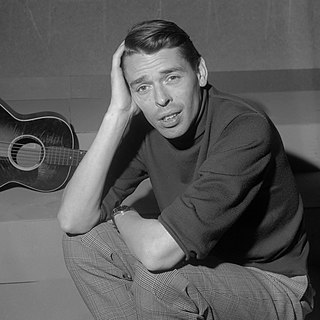
Jacques Romain Georges Brel was a Belgian singer and actor who composed and performed theatrical songs. He generated a large, devoted following—initially in Belgium and France, but later throughout the world. He is considered a master of the modern chanson.

Jacques Brel et ses chansons, later released as Grand Jacques, is the début album by Belgian singer-songwriter Jacques Brel.

Quand on n'a que l'amour is the second studio album by Jacques Brel. Also known as Jacques Brel 2, the original album was released in April 1957 by Philips (N76.085R). The album was reissued on 23 September 2003 under the title Quand on n'a que l'amour as part of the 16-CD box set Boîte à bonbons by Barclay. The title song "Quand on n'a que l'amour" has been covered by Dalida, Céline Dion, Lara Fabian, Patricia Kaas, and Latifa, among others.

Au printemps is the third studio album by Jacques Brel. Also known as Jacques Brel 3, the original record was released in 1958. The album was reissued on 23 September 2003 under the title Au printemps as part of the 16-CD box set Boîte à bonbons by Barclay.
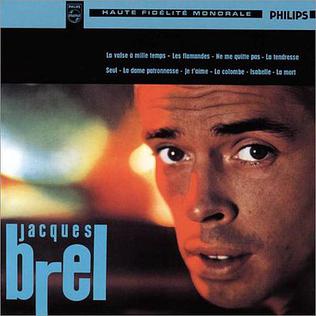
La Valse à mille temps is Jacques Brel's fourth album. Also known as Jacques Brel 4 and American Début, the album was released in 1959 by Philips. The album was reissued on 23 September 2003 under the title La Valse à mille temps as part of the 16-CD box set Boîte à bonbons by Barclay.

Olympia 1961 is Jacques Brel's first live album. The album was reissued on 23 September 2003 under the title Enregistrement Public à l'Olympia 1961 as part of the 16-CD box set Boîte à bonbons by Barclay.
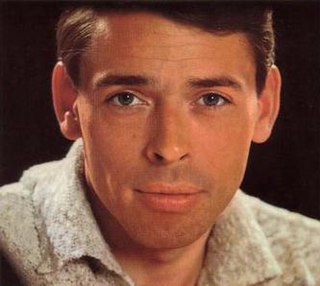
Les Bourgeois is the sixth studio album by Jacques Brel. Also known as Jacques Brel, the album was released on Barclay Records on 15 March 1962. Later, on 4 April 1962, a 10" maxi-single containing eight of the album's tracks was released. The same year saw the release of a limited, special edition release of the album that consisted of the original LP with "Jacques Brel" written diagonally across its white cover. This edition was numbered on the front and hand signed on the back.

Les Bonbons is a compilation album by Jacques Brel. Also known as Les Vieux, Jacques Brel Accompagné par François Rauber et Son Orchestre, and Encore, the album was released in 1966 by Barclay. The original 1966 album was itself a composite of two earlier 10" releases, one from 1963 and one from 1964. The album was reissued on 23 September 2003 under the title Les Bonbons as part of the 16-CD box set Boîte à bonbons by Barclay.
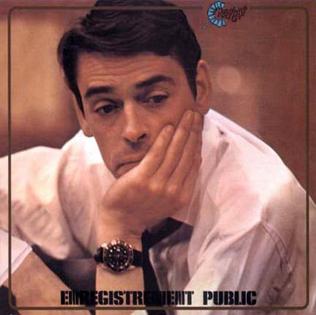
Enregistrement Public à l'Olympia 1964 is Jacques Brel's second live album. The original 25 cm LP version only contained track 1-8. Also known as Olympia 64, the album was reissued with a total of 15 chansons in 1988 as part of CD Box "Integrale", and on 23 September 2003 under the title Enregistrement Public à l'Olympia 1964 as part of the 16-CD box set Boîte à bonbons by Barclay. The album was included in Robert Dimery's 1001 Albums You Must Hear Before You Die.

Ces gens-là is the ninth studio album by Jacques Brel. Also known as Jef, it was released in 1966 by Barclay (80323). The album was reissued on 23 September 2003 under the title Ces Gens-Là as part of the 16-CD box set Boîte à bonbons by Barclay.
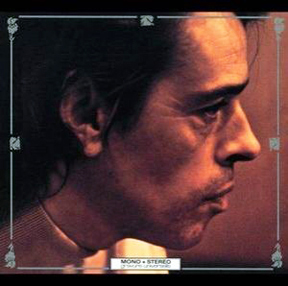
J'arrive is Jacques Brel's eleventh studio album. Originally released in 1968 by Barclay (80373), the album was reissued on 23 September 2003 as part of the 16-CD box set Boîte à bonbons by Barclay. The album has been praised for Brel's ability to transmit a wide-range of feelings onto the listener, including melancholy, nostalgia and optimism.

L'Homme de la Mancha is Jacques Brel's twelfth studio album. Released in 1968, it is the cast recording of the French adaptation of The Man of la Mancha by Mitch Leigh and Joe Darion. Brel adapted the book, translated the lyrics, directed the production, and played the role of Don Quixote. This was the only time he ever adapted songs by other writers or appeared in a stage musical. Joan Diener, who played Dulcinea in the original 1965 production, reprised the part in this production. The album was reissued on 23 September 2003 as part of the 16-CD box set Boîte à bonbons by Barclay.

Ne me quitte pas is Jacques Brel's thirteenth studio album. Released in 1972 by Barclay (80145), the album features re-recordings of many of Brel's best-known songs. The album was reissued on 23 September 2003 as part of the 16-CD box set Boîte à bonbons.
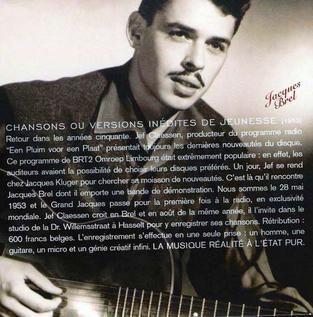
Chansons ou versions inédites de jeunesse is an album of Jacques Brel rare early recordings first issued as part of the 16-CD box set Boîte à bonbons on 23 September 2003. This CD contains 28 titles: 26 songs from Radio Hasselt recorded 14 August 1953 and 21 August 1953, a recording from the Brel family's private collection, and a 1962 recording from Dutch television AVRO.

Marieke is the fifth studio album by Jacques Brel. Also known as 5, the album was released in 1961 by Philips. The album was reissued on 23 September 2003 under the title Marieke as part of the 16-CD box set Boîte à bonbons by Barclay.

Boîte à bonbons is a 16-CD box set compilation of the recorded songs of Jacques Brel. The limited edition box set was released to mark the 25th anniversary of Jacques Brel's death. The box set includes 15 albums remastered from the original records. CD digipacks are presented in their original sleeve with lyrics. The box set also includes an illustrated booklet with various pictures, a biography, and Brel's citations and testimonies. Also included are five never before released songs from the recording sessions of the album Les Marquises. Included with the booklet is a bonus CD containing 28 titles: 26 songs from Radio Hasselt recorded 14 and 21 August 1953, a recording from the Brel family's private collection, and a 1962 recording from the Dutch television show AVRO. The box set is also available in an alternate velvet box format with CDs in crystal cases.

Infiniment (Infinitely) is a 2-CD compilation of Jacques Brel's best known songs. This compilation of remastered songs also contains 5 unpublished titles from the recording session of the album Les Marquises: "La cathédrale", "L'amour est mort", "Mai 40", "Avec élégance", and "Sans exigences". A booklet is included with the lyrics of the 5 new titles. Infiniment was released on 30 September 2003 to mark the 25th anniversary of Brel's death.
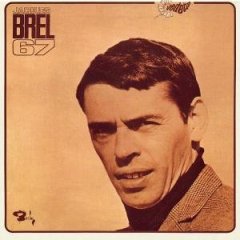
Jacques Brel 67 is Jacques Brel's tenth studio album. Originally released in 1967 by Barclay, the album was reissued on 23 September 2003 under the title Jacques Brel 67 as part of the 16-CD box set Boîte à bonbons by Barclay.

Orly is a chanson (song) in French by the Belgian songwriter Jacques Brel. It was recorded on September 5, 1977 and released on Brel's last long-playing record on Disques Barclay on November 17 of the same year. The album by the songwriter, who had returned from the South Seas after a long artistic break, became a public event in France. Orly is considered one of the outstanding songs on Brel's last release.



















